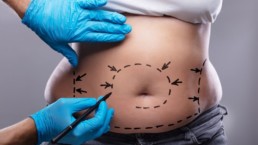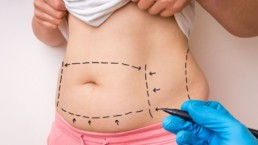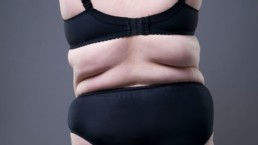How Long After Tummy Tuck Can I Take A Bath?

A tummy tuck in Tijuana is also called an abdominoplasty in the industry. It reduces the loose skin around your abdomen and tightens your muscles. It makes you look slimmer and more contoured.
You can combine this with liposuction and other surgeries to achieve the look you’re going for. Tummy tuck surgery is one of the best things you can do for contouring your body. However, you also need to be careful in your recovery.
There are certain things you can do and not do after your operation. And you’re probably wondering “How long after tummy tuck can i take a bath?” So let’s talk about some post-operative care, specifically with regards to taking a bath.
What Is A Tummy Tuck?
Before getting into “when can I shower after a tummy tuck” let’s talk about what the procedure is. A tummy tuck is done with general anesthesia. Then the doctor places an incision along your lower abdomen.
It’s a minimally invasive procedure in which they remove loose skin and take out small fat pockets. Ultimately, you have a flatter, firmer stomach.
What Is Involved With Tummy Tucks?
There are certain side effects and medications and procedures that you should know about after your tummy tuck. Your doctor will consult with you to tell you what your specific condition requires.
However, in general, you should avoid strenuous physical activity. You might find it helpful to have somebody help you with daily tasks around the house or otherwise.
When Can I Take A Bath After Tummy Tuck?
So finally let’s cover “when can I shower after my tummy tuck?”One of the common questions people ask is when they can take a bath after a tummy tuck. In general, you should wait at least six weeks after your tummy tuck surgery to take a bath again.
This includes immersing yourself in other types of water. For instance, you shouldn’t go swimming in a lake, pool, or ocean for six weeks as well. Also avoid super hot water like that of a jacuzzi or hot tub.
It’s best to use lukewarm water. Your surgeon can inform you about certain soaps that are healthy to use while you’re in your recovery period. Keep your incision covered with a bandage during the period of your recovery as well.
You should also check for signs of infection like swelling or redness. Apply lotions to your skin and avoid stretching it out. Don’t wear clothes that are too restrictive over the incision.
So to answer the question specifically regarding “when can I take a bath after a tummy tuck” you should wait a few weeks at a minimum.
Ways To Speed Up The Healing Process
A better question than “when can you take a bath after tummy tuck” is how to speed up the process. Eating plenty of fruits and vegetables is a great way to make your healing process go faster. Lean proteins and whole grains are another way that will help your recovery process.
Using a multivitamin pill like vitamin C is also helpful. Try to avoid salty food or processed foods. These may not be as appropriate for your skin during your recovery.
When Can You Shower After Tummy Tuck — Summary
Reach out to the doctors at Hospital BC today. Our dedicated weight loss surgeons will help you understand your options with regards to looking your best.
In addition, they’ll provide optimal recovery techniques so that you can get back to feeling normal as soon as possible. Even though you’ll wait a few weeks until the first shower after a tummy tuck, the process is well worth the results.
High Protein Foods For Bariatric Patients 101

After undergoing bariatric surgery, proper diet and exercise is important. One of the best things you can do is to eat foods rich in protein. In this article, let’s talk about the importance of protein post-op.
Plus, let’s answer questions like “what is the best protein drink for bariatric patients” so you can have easy quick snacks on hand.
Read More: Why Are You Still Hungry After Weight Loss Surgery?
The Importance Of High Protein Snacks For Bariatric Patients
Protein intake is part of your new routine on your journey towards sustained health and weight loss. It’s important to consume high protein diets after your weight loss surgery for a number of reasons. Protein helps your body grow and repair itself.
It’s a building block for the body’s core mechanisms. Protein helps fight infections after surgery. You should aim to have a lot of protein in every meal after your bariatric surgery. Aim to eat between 70 and 100 grams of protein per day.
High Protein Foods For Bariatric Patients
High protein sources include eggs, beans, fish, chicken, beef, yogurt, cottage cheese, tofu.
What are the best protein shakes for bariatric patients? When considering protein drinks, you want to ensure that you’re consuming a high protein to carbohydrate ratio.
Therefore, a great way to make a protein shake is this: Use low-fat milk, yogurt, and whey protein powder.
From here, you can add fresh fruits as well. The answer for “what is the best protein shake for bariatric surgery” boils down to this: Aim to get around 20 to 40 grams of protein in the shake and limit unnecessary carbohydrates such as processed sugars.
Tips For A High Protein Diet After Bariatric Surgery
- Meal planning: Plan your meals in advance. That way it’ll be easier to choose the right foods instead of giving in to junk food.
- Eat lean meat: When it comes to post-bariatric foods protein is better than visible fat.
- Chew your food fully: The longer you chew your food, the easier it is for your body to digest. This increases the chances that your body will absorb protein rather than fat from the food.
- Eat the protein first: Try to be disciplined with your food intake. Aim to eat the protein portion of your meal before the other parts. That way you’ll feel full faster while ensuring you meet your protein needs for the day.
When it comes to high protein foods after bariatric weight loss surgery, you have a lot of options. As long as you can stick to a consistent plan, it’s okay to include some extra carbohydrates here and there.
Just make sure that the base of your diet consists of mostly protein such as the foods mentioned above.
Source: Eisenberg D, Shikora S, Aarts E, et al. Indications for Metabolic and Bariatric Surgery. ASMBS and IFSO. 2022.
Bariatric Surgery for Weight Loss
If you’re considering starting your weight loss journey with bariatric surgery, contact Hospital BCN today. Discover how you can begin a new stage of your life. And learn about the best ways to sustain your weight loss now and into the future. Getting bariatric surgery in Tijuana can change everything.
Bariatric Surgery: What Happens If You Don't Take Vitamins After Surgery?

Diet and exercise did not help you lose weight, so you decided to have bariatric surgery. Great job! Bariatric surgery helped you lose significant weight and improve your health.
However, weight loss surgery is not a miracle cure. You will still need to make healthy choices and eat nutritious foods. You will also need to take vitamins and minerals to prevent nutrient deficiencies.
What Happens If You Don’t Take Vitamins After Surgery?
You may be at risk for developing vitamin deficiencies when you are not taking vitamins after gastric sleeve surgery. That’s because, post surgery, the size of your stomach decreases and your gut cannot absorb all the nutrients from the food you eat as it could before.
This could lead to some common gastric sleeve vitamin deficiency symptoms such as:
- Fatigue
- Weakness
- Muscle cramps
- Depression
- Trouble concentrating
- Headaches
You may also experience hair loss, brittle nails, and dry skin. In severe cases, vitamin deficiencies can also lead to life-threatening health problems, such as heart failure, stroke, and cancer. Fortunately, your vitamin regimen following your bariatric surgery will help prevent these health problems.
Vitamin Recommendations for Bariatric Patients
You may think, “What vitamins should I take after gastric sleeve surgery”? Well, your bariatric surgeon or physician will likely prescribe a vitamin regimen or vitamins after Bariatric Surgery – a list of what vitamins to take post bariatric for you to follow.
The prescribed dosage will depend on:
- The type of procedure you’ve had
- Your current health
- Nutritional deficiencies that need to be corrected
Gastric Bypass:
Doctors often recommend that patients take a multivitamin with iron and calcium citrate daily. Vitamin B12 shots or sublingual vitamin B12 (under the tongue) are also recommended.
Gastric Sleeve:
Symptoms of vitamin deficiency after gastric sleeve account for many postoperative visits. Vitamin B12 deficiency is more common than other deficiencies and is easily detected with serum laboratory testing. The recommended dose of vitamin B12 is 1000 mcg intramuscularly or subcutaneously monthly for life. Otherwise, a complete multivitamin, calcium with Vitamin D, and iron supplement are recommended for lifelong supplementation.
Gastric Band Surgery:
Whether you undergo a gastric sleeve in Mexico or a Gastric Band Surgery, you will need tailored vitamin supplements with iron, calcium, and vitamin B12.
Everyone is unique. You may need to take more or less than the recommendations above to meet your daily vitamin and mineral needs. Work with your physician or nutritionist to find the proper vitamin regimen. If you are not sure whether you are taking the right vitamins or experiencing any vitamin deficiency symptoms, be sure to contact Hospital BCN.
Bariatric Surgery Recovery Time: Back to Work After Bariatric Surgery

Weight loss surgery is a big step to take for your life. These procedures can allow you to lose over half your excess body weight and live a better, healthier life, free from the burdens of overeating and health problems caused by obesity. But these procedures are not to be done lightly. Most bariatric procedures are not easily reversible. They also require a fair bit of recovery time, as they require changing how your digestive system works.
If you’re looking to get bariatric surgery, you might be wondering about taking time off work. How long should you take off work? First, let’s explore what bariatric surgery recovery is like.
What Is Bariatric Surgery Recovery Like?
1-3 Days Post-Op:
You’ll be in the hospital until you are cleared for release. If you’re getting an all-inclusive bariatric surgery package in Mexico, you’ll be staying at your hotel for a few more days. Your diet will be clear liquids only. If you were on a liquid fast before surgery, you’d simply be continuing that for a few more days.
Abdominal pain and fatigue are common symptoms. You’ll be prescribed painkillers to deal with pain caused by incisions.
One Week:
You’ll be on a pureed food diet, which is what your stomach can handle. By this time, you’ll be back in the comfort of your home.
Two Weeks:
By this time, you’ll most likely be back to your normal routines. However, you’ll only be able to eat pureed and soft foods at this time such as scrambled eggs, ground meat, and mashed potatoes.
4-6 Weeks:
By this time, you’ll be introducing more normal foods into your diet. Most abdominal pain will have gone away by now, but if it still persists, let your doctor know.
One thing that people are concerned about is what they will have to give up after bariatric surgery. Do you have to quit coffee? Read more: How Long to Avoid Coffee After Bariatric Surgery
How Long Is Bariatric Surgery Recovery Time?
Recovery is a journey. Not all patients take the same amount of time to recover. Complications happen, and some patients might find recovery less comfortable than others.
Most patients can return to normality after two weeks. This includes going back to work, doing errands outside of the house, and being able to walk around. However, there’s still more recovery that needs to happen.
A full recovery, that is the ability to resume active exercise and reintroduce typical foods, will take about 4 to 5 weeks. Exercising after bariatric surgery will generally start with short brisk walks and graduate to jogging after a few months.
We recommend asking your doctor when it’s safe to:
- Lift heavy objects
- Do intense exercises such as sports or sprints
- Eat certain types of foods
How Long Do I Have To Take Time Off Work For Bariatric Surgery?
Most patients will be advised to take 1-2 weeks off of work after bariatric surgery. You may be able to go back to work in less time if your job does not require any strenuous activity. If you work from home, you should be able to get back to your normal routine within a week.
The more time you can take off work to recover, the better. However, we understand that not all patients will be able to take much time off work to get this surgery. Make sure to tell your boss and coworkers what you’ll be going through and what recovery will be like. Send them this article!
Get Bariatric Surgery in Mexico & Save Thousands
Dr. Jalil Illan is now working with Dr. Robert Rutledge, the inventor of the mini gastric bypass procedure, to provide bariatric surgery at a lower cost to those who need it most. If you’re from the USA and you’re looking to get bariatric surgery in Mexico, contact Hospital BCN today!
Is There an Age Limit on Liposuction?

Liposuction is a popular cosmetic surgery procedure that can help people achieve a more toned appearance. However, some people are wondering if there is an age limit on liposuction. In this blog post, we will explore how old you have to be to get liposuction and discuss whether or not it is safe for older adults to undergo the procedure.
What Is Liposuction?
Liposuction is a surgical procedure that removes fat from the body using suction. A small, metal tube called a cannula is inserted through tiny incisions in the skin and used to break up the fat cells before suctioning them out. The procedure can be performed on various areas of the body, including the abdomen, thighs, hips, buttocks, arms, and neck.
Is lipo for weight loss? Read: How Much Weight Is Lost With Liposuction.
Is There an Age Limit on Liposuction?
There is no set age limit for liposuction. However, it is important to note that the safety and effectiveness of the procedure may vary based on a person’s age and health. For example, older adults may be more at risk for complications after surgery due to their increased risk for health conditions such as diabetes, heart disease, and hypertension. Additionally, the skin of older adults may not heal as well after surgery, which could lead to visible scarring.
But what about children and teens? Can you be too young for liposuction?
The answer to this question is a bit more complicated. At what age can you get liposuction? In general, it is not recommended that children or teens undergo liposuction due to the potential for negative side effects. For example, liposuction can cause emotional trauma and body dysmorphic disorder (BDD), which is a condition characterized by an obsession with one’s appearance. Additionally, the procedure can interfere with normal growth and development in children and teens.
So, while there is no age limit per se on liposuction, it is important to consider your age and health before undergoing the procedure. If you are considering liposuction, we recommend talking to a board-certified plastic surgeon to see if it is right for you.
The Final Word
Ultimately, the decision to undergo liposuction should be made on an individual basis after consulting with a board-certified plastic surgeon. During your consultation, your surgeon will evaluate your health and discuss the risks and benefits of the procedure.
If you are considering liposuction, it is important to choose a plastic surgeon who has experience performing the procedure on patients of all ages. We offer both traditional and minimally invasive liposuction techniques and can tailor the treatment to meet your unique needs and goals. Talk to us about liposuction in Tijuana, Mexico.
Is It Possible to Get Gastric Sleeve Surgery Twice?

With any surgery, there is the possibility that things will go wrong. In some cases, the results just don’t match your expectations. If this happens with your gastric sleeve surgery, can you get it twice? Let’s dig into this topic and get to the answer.
How Gastric Sleeve Changes the Body
Gastric sleeve surgery is a weight-loss surgery that involves removing a large portion of the stomach. This results in a smaller stomach size and reduced hunger. The surgery also removes the hormones that are responsible for hunger (ghrelin).
It’s important to note that gastric sleeve surgery is not reversible. That means once the stomach has been removed, it cannot be put back.
So, Can You Get Gastric Sleeve Surgery Twice?
The answer to this question is no, you cannot get gastric sleeve surgery twice. As we mentioned before, the surgery is irreversible. Once your stomach has been removed, it’s gone for good. Getting it twice would mean removing a large percentage of the stomach again—but since it is already gone, it isn’t possible.
Does That Mean That If You Are Unhappy, You Are Out of Luck?
No. While it isn’t possible to perform gastric sleeve twice, it can be repaired or corrected if something went wrong. In some cases, the stomach can stretch back out to its original size. If this happens, you may be a candidate for a gastric revision surgery.
A gastric revision surgery is a surgery that is performed to fix or correct weight-loss surgery that didn’t go as planned. This type of surgery is often done to improve weight loss or address complications from the previous surgery.
Conversion to Gastric Bypass Is Also an Option
Another option if you are unhappy with your gastric sleeve results is to convert to a gastric bypass. This type of surgery is more complex than a gastric sleeve and involves rerouting the digestive system.
Like any major surgery, there are risks involved. But, if you are unhappy with your current situation, it may be worth considering.
Getting Help
If you are unhappy with your results from gastric sleeve surgery, talk to your doctor about your options. They will be able to help you determine if a revision surgery is right for you. If you don’t have a doctor to turn to, work with us. In addition to offering gastric sleeve in Mexico, we also excel at revisions and conversions.
Keep in mind, if you haven’t had your surgery yet, it is rare for things to go wrong. Read Preparing for Gastric Sleeve Surgery to set yourself up for success.
How Long Does a Tummy Tuck Procedure Take From Intake to Dismissal

When it comes to getting a tummy tuck, many people want to know how long the entire process will take. From the time you arrive at the surgery center until you are dismissed and able to go home, what is the timeline?
In this blog post, we will give you a detailed breakdown of what happens during a tummy tuck procedure and how long each step will take. Keep reading to learn more!
The Check-In Process
When you arrive for your tummy tuck procedure, you will first need to check in with the front desk. This process usually only takes a few minutes. Once you are checked in, you will be asked to wait in the waiting room until it is time to get prepped for your surgery.
The Pre-Op Stage
Once you have been checked in, a nurse will take you back to the pre-operative area, where you will be asked to change into a surgical gown. After changing into your gown, the surgeon will come in to meet with you and mark the areas of your abdomen that will be treated during surgery. This can take anywhere from 15 minutes to one hour, depending on how complex the procedure is and what things you need to discuss.
The Tummy Tuck Procedure
Once the surgeon has finished marking the areas to be treated, you will be taken into the operating room where anesthesia will be administered. The type of anesthesia used for a tummy tuck procedure is typically general anesthesia, which means that you will be asleep for the duration of surgery.
Once you are asleep, the surgeon will make an incision in the lower abdomen, just above the pubic area. Through this incision, the surgeon will access the underlying abdominal muscles and tissue.
The next step is to tighten these muscles and remove any excess skin and fat. Once the desired results have been achieved, the incisions will be closed with sutures. This usually takes around three hours.
Does some of this sound similar to lipo? Read: Are Tummy Tucks and Lipo the Same Thing?
After Surgery
After your tummy tuck procedure is complete, you will be taken to a recovery room where you will be closely monitored as you wake up from anesthesia. Once you are awake and alert, you will be moved to your own room and remain in the hospital for at least one day.
So, how long a tummy tuck takes from start to finish is about one to two days, depending on how many days you remain in the hospital. However, the surgery for your tummy tuck in Tijuana should only take about three hours.
How Much Weight Is Lost With Liposuction?

Liposuction is a surgical procedure that is used to remove fat from the body. It is often used to improve the appearance of certain areas, such as the stomach, thighs, and buttocks. Liposuction can be performed on both men and women, and it is one of the most popular cosmetic procedures in the world. But can it also help you lose weight?
In this blog post, we will discuss how much weight is lost with liposuction and better surgeries to choose for authentic weight loss.
First, Understand the Difference Between Weight Loss and Body Contouring
Before getting into how much weight you can lose with liposuction, you need to understand what type of a procedure it is. Liposuction is a body contouring procedure. This means it is designed to smooth out the lines of the body, making it look slimmer and more toned. Weight loss, on the other hand, is a reduction of body mass, usually through the shrinking of fat cells. While liposuction eliminates some fat cells and thus will have an impact on body mass, it isn’t a weight loss procedure.
How Much Weight Will I Lose With Liposuction?
The amount of weight that is lost with liposuction depends on several factors. For example, if you have a large amount of fat in the area where liposuction is performed, then you can expect to lose more weight than someone who has less fat there. Also, your surgeon will decide how many units they think they should remove during your procedure, and this may impact the final outcome as well.
While some people do achieve noticeable weight loss after having liposuction, it’s not uncommon for patients to only lose a couple of pounds. Essentially, you should not use liposuction as a weight loss method; it is just for creating more attractive lines and slimming the targeted areas.
What Are Better Options for Weight Loss Surgery?
While there are many surgical methods for weight loss, the most popular procedures include gastric bypass surgery and bariatric surgery. Gastric bypass surgery makes it so that you have a smaller stomach, which means you can’t eat as much food before feeling full. Bariatric surgeries work in different ways to reduce your appetite or make it so that certain foods don’t digest properly.
Read Lipo or Bariatric Surgery: How to Tell if You Are a Candidate for Both.
These types of surgeries also have risks involved with them, but they’re generally considered safe when performed by an experienced surgeon who specializes in these types of operations. If you need help losing weight but aren’t sure if liposuction is right for you, talk to your doctor about other options that may be available instead.
For more information on weight loss procedures or liposuction in Tijuana, contact Hospital BC.
How Long Do Fat Cells Take to Grow After BBL?

If you are considering a Brazilian butt lift (BBL), you may be wondering how long it will take for the fat cells to grow and give you the results you want. This is a common question, and unfortunately, there is no one definitive answer. Every patient is different, and the time it takes for the fat cells to grow will vary from person to person. In this blog post, we will discuss some of the things that can affect how long it takes for the fat cells to grow after a BBL procedure.
What Is a BBL?
A Brazilian butt lift, also known as a BBL, is a cosmetic surgery procedure that can be used to enhance the shape and size of your buttocks. During the procedure, we will first remove some excess fat from another part of your body using liposuction techniques before injecting it into specific areas on either side of each buttock cheek. This helps create rounder curves while adding volume and fullness to the area.
How Long Does It Take for Fat Cells to Grow After BBL?
If you are considering a Brazilian butt lift in Tijuana, you may be wondering how long does it take for fat cells to grow after BBL? The results of your procedure will not appear immediately because it takes time for the fat cells that have been transferred into your buttocks to grow. Since each patient is different and has different body types, healing times will vary from person to person.
In most cases, patients can expect their new curves within two weeks after surgery but might wait up to six months before they reach their final shape. However, some people may notice an increase in size right away while others don’t see any changes for a few months. The important thing to remember is that the final results will not be visible until the fat cells have had time to grow and mature.
What Affects Fat Cell Growth After BBL?
There are several things that can affect how long it takes for the fat cells to grow after a Brazilian butt lift procedure. One of the most important factors is your body type. If you have a lot of excess fatty tissue, it will take longer for the fat cells to grow than if you are leaner. This is because there is more available space for them to expand into.
Another factor that can affect cell growth is how much adipose tissue (fat) was removed during liposuction surgery. If a large amount of fat was removed, there will be less available space for the cells to grow. This means that the fat cells may not reach their full size or shape as quickly.
The age of the patient can also play a role in how long it takes for the fat cells to mature after surgery. Younger patients typically have faster healing times and see results sooner than those who are older. However, this does not mean that older patients cannot achieve desirable results – it just might take a bit longer.
Curious about med spa procedures? Read: What Age Should I Start Getting BOTOX?
Gastric Sleeve vs Gastric Bypass Surgery: What’s the Difference?

If you are considering weight loss surgery, you may be wondering which procedure is right for you – gastric sleeve surgery vs. gastric bypass surgery. Both procedures are effective at helping people lose weight, but there are some key differences between them. In this blog post, we will discuss the pros and cons of both procedures so that you can make an informed decision about which surgery is right for you.
The Gastric Sleeve Procedure: What is it?
The gastric sleeve in Mexico involves removing about 80% of the stomach. This leaves only a narrow tube-shaped section, which will be referred to as your “sleeve” from now on. Patients who have had this surgery report feeling full after eating just a few bites of food.
Because there are no foreign objects in your body and you still have some digestive function, there is less risk for complications than with other types of weight loss surgeries such as gastric bypass surgery or LAP banding procedures.
A sleeve gastrectomy may also help reduce blood sugar levels in patients with type II diabetes by limiting how much food can enter into their bloodstream at once. For these reasons, the gastric sleeve procedure is becoming increasingly popular.
The Gastric Bypass Procedure: What is it?
The gastric bypass in Mexico involves creating a small pouch at the top of the stomach and then connecting this pouch to the small intestine. This reduces the amount of food that can be eaten at one time and also limits how much your stomach can hold. Like the sleeve gastrectomy, the gastric bypass surgery helps you feel full after eating just a few bites of food.
However, because the gastrointestinal tracts is significantly altered, there is a greater risk for complications such as infection, ulcers, and hernias. In addition, patients who have had this surgery must take nutritional supplements for life in order to avoid malnutrition.
Gastric Sleeve vs. Gastric Bypass: Which Procedure is Right for Me?
Although both procedures are effective at helping you lose weight, there are several advantages and disadvantages of each procedure that should be considered before making a final decision. In addition to the differences between gastric sleeve and gastric bypass, consider the following:
Gastric Sleeve Advantages
- You will feel full after eating just a few bites of food. This means that you can still enjoy your favorite foods, but they will be consumed in small amounts.
- Because this procedure is less invasive than other types of weight loss procedures, it also offers lower risks for complications such as infections or hernias.
- There are no foreign objects left inside your body after surgery so there is less risk for rejection by your immune system.
- It also offers faster recovery time compared to gastric bypass surgery because there are fewer incisions made during the operation (only one).
Gastric Bypass Advantages
- The gastrointestinal tract is significantly altered, so patients who have had this surgery can expect to lose weight more quickly than those who have had a sleeve gastrectomy.
- The long-term results of this surgery tend to be better than with gastric sleeve.
- In addition, the surgery may help reduce blood sugar levels in patients with type II diabetes.
Now that you know more about these procedures, contact Hospital BC to schedule your consultation.
For more information, read Your Guide to Preparing for Bariatric Surgery.

